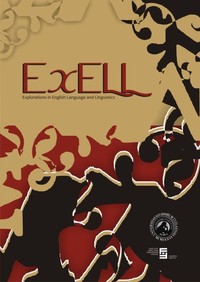Rhetorical questions as aggressive, friendly or sarcastic/ironical questions with imposed answers
Rhetorical questions as aggressive, friendly or sarcastic/ironical questions with imposed answers
Author(s): Džemal ŠpagoSubject(s): Language and Literature Studies, Semantics, Stylistics
Published by: Filozofski fakultet Univerziteta u Tuzli
Keywords: rhetorical question; imposed answer; aggressive rhetorical question; friendly rhetorical question; sarcastic/ironical rhetorical question; peer-to-peer rhetorical questions; superior-to-inferior RQ;
Summary/Abstract: Rhetorical questions (RQs), as a cross-breed of questions and statements, represent an effective tool in putting forward the Speaker's ideas, as well as influencing the ideas and opinions of other people. Because of their communicative effectiveness and multifunctionality, they are frequently used in different contexts and for different purposes, and, as such, they represent an interesting topic for further research. The aim of this paper is threefold: (i) to explore the nature of the implied answer to RQs, (ii) to offer a classification of RQs based on the Speaker's communication style, and (iii) to examine whether (or to what extent) the Speaker-Addressee relationship (peer-to-peer, superior-to-inferior, inferior-to-superior) influences the selection and frequency of use of different types of RQs. Using Stalnaker’s (2002) model of Common Ground and Caponigro and Sprouse’s (2007) concepts of Speaker's and Addressee's Beliefs, the author redefines the nature of the answers implied by RQs, claiming that they are imposed on the Addressee rather than mutually recognized as obvious. Based on the model of communication styles as defined by Yuan et al. (2018), RQs are classified into aggressive, friendly and sarcastic/ironical questions with imposed answers. The analysis of the corpus, which consisted of 275 RQs taken from ten American movie scripts, showed that friendly RQs are more common than the other two types, and that, in instances where one of the interlocutors is in a superior position, superior-to-inferior RQs are by far more common than vice versa. The finding that RQs asked by inferiors make up less than a third of RQs occurring between interlocutors with different social standing is in line with the view that answers to RQs are imposed on Addressees.
Journal: ExELL (Explorations in English Language and Linguistics)
- Issue Year: 8/2020
- Issue No: 1
- Page Range: 68-82
- Page Count: 15
- Language: English

